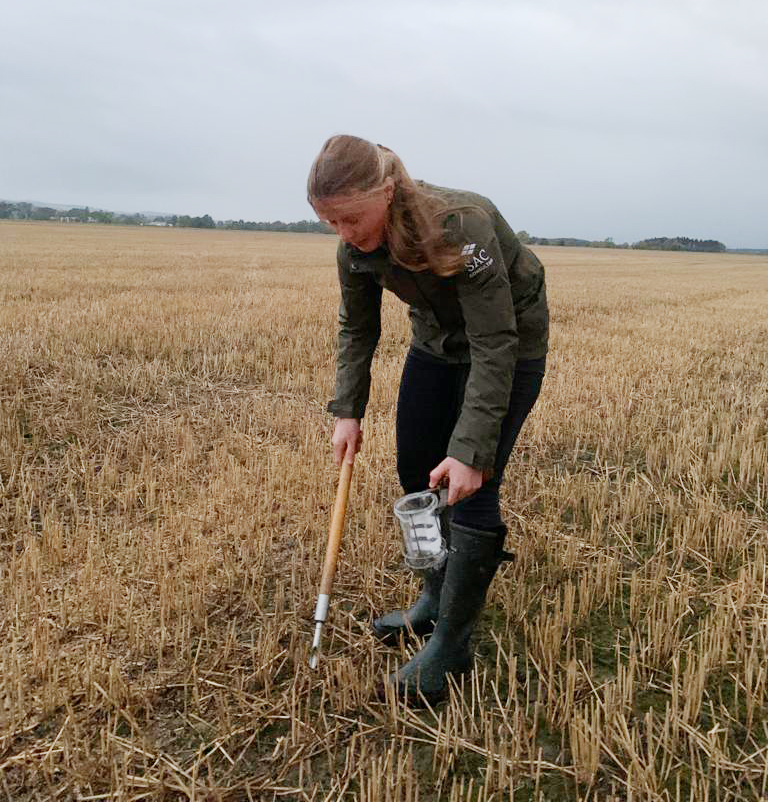How do you know if your fields have PCN?
7 November 2022Potato cyst nematodes or PCN have been moving up the agenda for Scottish growers. The pest has become a serious threat to our tattie industry, and it’s not just an issue potato growers need to take seriously, but everyone in arable production, especially those who rent land for potatoes.
PCN are small parasitic roundworms that survive for many years within cysts in the soil. When potatoes are planted, the nematodes hatch, feed and reproduce on potato roots which can hit yields hard. If the infestation is only light, signs of PCN attack are not usually visible, but as populations increase, areas of stunted growth, wilting, yellowing, or dead plants can develop in the crop. Every time an infested field is planted with a susceptible potato variety, the problem gets worse. There are tools to manage PCN – such as resistant varieties, longer rotations, biofumigant crops, and nematicides – but you need to know it’s there!
Soil testing for PCN is the only way to determine if PCN is present, how bad the infestation is and what species. You need to know all three of these facts to manage PCN effectively. How a field is sampled is important – one shovel of soil from near the gate will not provide a representative result. The field needs to be divided into sampling areas no bigger than 4ha (smaller units of 1ha or 0.25ha will considerably increase the chance of detection), as there are likely to be PCN hotspots because the nematodes can’t move a large distance unless transported via soil. A minimum of 50 cores should be taken randomly across each block in a grid W pattern using a probe corer. Different soil testing organisations test different quantities of soil however, larger soil samples give better results.
If land is intended for seed potato production you must, by law, apply to have the field sampled and tested by SASA. Only when no PCN has been found can you grow seed potatoes. If the field is for ware, there is no compulsory test, but an infestation can only be managed once you know it is there and soil sampling is therefore beneficial.
If you are lucky enough to have land free from PCN, then you have an asset worth preserving and should aim to keep it that way. Using classified seed potatoes and removing soil from machinery, wheels, and boots before entering non-infested fields is a good approach. Test the soil regularly (after each potato crop) to monitor the situation. Early detection of PCN is crucial to prevent populations increasing to unmanageable levels.
Management of PCN is complex, but achievable. An integrated approach is required which hinges on resistant varieties. There are two species of PCN, Globodera pallida and Globodera rostochiensis – it is crucial to know which is present in the soil. If you have a PCN infestation, talk to your agronomist or specialist consultant about a management plan. Soil testing is a small cost, but it’s worth it to safeguard the future of Scottish potato production.
Jane Brisbane, SAC Consulting
Sign up to the FAS newsletter
Receive updates on news, events and publications from Scotland’s Farm Advisory Service

